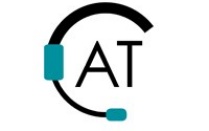Full citation
Fransman, M. (2008). Disaggregating Firms in Analysing the Costs and Benefits of the University-Industry Relationship: Based on an Analytical and Empirical Study from Scotland. Economics of Innovation and New Technology, 17(1-2), 123-136.
Format: Peer-reviewed article
Type: Research — Non-experimental
Experience level of reader: Fundamental
Annotation: This article classifies companies into three segments, large national and international R&D intensive firms, university spin out firms, and established small and medium sized enterprises (SMEs) in an attempt to understand why some companies reach out to and value universities for innovative knowledge and others do not. It is concluded that the SMEs have a greater difficulty in forming mutually beneficial relationships with universities. The author personally investigates the discrepancies between the three company segments and describes two general issues dealing with information and incentives.
Setting(s) to which the reported activities/findings are relevant: Government, Small business (less than 500 employees), University
Knowledge user(s) to whom the piece of literature may be relevant: Manufacturers, Researchers
Knowledge user level addressed by the literature: Organization
This article uses the Commercial Devices and Services version of the NtK Model
Primary Findings
Barriers:
- Inability of Small and Medium sized Enterprises to locate needed knowledge from universities
The author conducted phone interviews with universities to understand the problems of university knowledge utilization by small and medium sized enterprises. He discovered the databases were difficult to find, contained irrelevant information, and information which is complex and implicit.
Occurrence of finding within the model: Step 2.2
- Complexities and costs of negotiating with universities on contract issues (deliverables, timetables, and intellectual property rights)for small and medium sized enterprises are too large to make a relationship worth while.
Authors discussions with small and medium sized enterprises revealed their belief that the costs involved in locating and contracting with university researchers were too high.
Occurrence of finding within the model: Step 4.6
- Lower incentives for universities to form relationships with small or medium sized enterprises compared to larger firms.
Author reasons that Small and Medium Sized Enterprises frequently do not have adequate personnel or financial resources to invest in a university relationship.
Occurrence of finding within the model: Step 4.1
